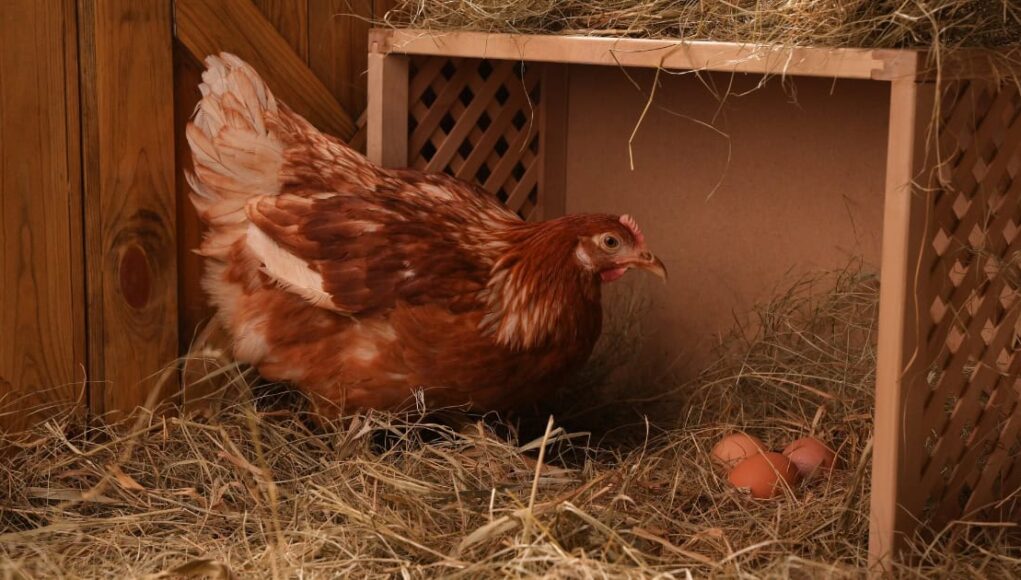When it comes to feeding broody hens in nest, understanding their unique needs is crucial. Broody hens are those that have decided to incubate their eggs and stay in the nest for extended periods. It’s essential to ensure they receive the right nutrition to maintain their health and the health of the developing chicks.

Understanding Broody Hen Behavior
Broody hens exhibit specific behaviors that set them apart from other chickens. They stay in the nest most of the time, fluff up their feathers, and may become protective over their eggs. This behavior requires special attention, especially when it comes to feeding them properly.
Why Nutrition Matters for Broody Hens
Proper nutrition is vital for broody hens as it affects their ability to maintain optimal body condition and support the growth of their embryos. Lack of adequate nutrition can lead to health issues and even the failure of eggs to hatch.
Essential Nutrients for Broody Hens
Broody hens need a balanced diet rich in proteins, vitamins, and minerals. Protein is essential for muscle maintenance and egg development, while vitamins and minerals support overall health.
Providing Fresh Water
Access to fresh water is critical for broody hens. Dehydration can lead to serious health problems and affect their ability to incubate eggs effectively.
Choosing the Right Feed
Opt for a high-quality layer feed that contains all the necessary nutrients for broody hens. Adding some cracked corn or other grains can provide additional energy, which is especially needed during the broody period.
Supplementing the Diet
Consider offering supplements such as oyster shell for calcium, which is crucial for eggshell formation, and grit to aid digestion.
Feeding Schedule and Quantity
Broody hens typically reduce their food intake, so it’s important to ensure they have access to food at all times. Offer smaller, more frequent meals to accommodate their eating habits.
Encouraging Hens to Eat
Sometimes, broody hens need encouragement to leave the nest and eat. Gently placing feed close to them can help, or removing them from the nest briefly to ensure they eat and drink.
Creating a Comfortable Environment
A comfortable nesting environment can promote better eating habits. Ensure they have a quiet, undisturbed area with proper bedding. Consider using organic bedding for added comfort.
Managing Nest Space
Space management is crucial to prevent stress. Ensure there is enough room for each hen, and consider separating extremely broody hens to prevent crowding. Learn more on separating broody hens.
Monitoring Hen Health
Regularly check broody hens for signs of malnutrition or illness. Look for weight loss, lethargy, or changes in behavior as indicators that something might be wrong.
Preventing Health Issues
Prevent health issues by maintaining a clean environment and ensuring access to fresh food and water. Keep an eye on avoiding broken eggs in nesting boxes, which can also affect their health.
Common Mistakes to Avoid
Avoid common feeding mistakes such as neglecting water supply or failing to provide a balanced diet. These can lead to serious health complications for broody hens.
Overfeeding and Underfeeding
It’s crucial to find the right balance in feeding. Overfeeding can lead to obesity, while underfeeding can result in malnutrition. Monitor feed intake closely.
FAQs
How often should I feed a broody hen?
Feed broody hens multiple times a day in smaller quantities to ensure they consume enough nutrients.
What should I do if my broody hen refuses to eat?
Try offering different types of feed or gently remove her from the nest to encourage eating and drinking.
Can I feed broody hens regular chicken feed?
While regular feed can work, it’s best to provide a diet specifically formulated for layers to meet their unique nutritional needs.

Conclusion
Feeding broody hens in nest requires careful attention to their unique needs. By understanding their behavior, providing a balanced diet, and creating a comfortable environment, you can ensure the health and well-being of both the hens and their developing chicks. Remember, proper care and nutrition are key to a successful brooding period.
For more information on setting up proper nesting solutions, visit Easiest Nesting Boxes.
This article contains affiliate links. We may earn a commission at no extra cost to you.











